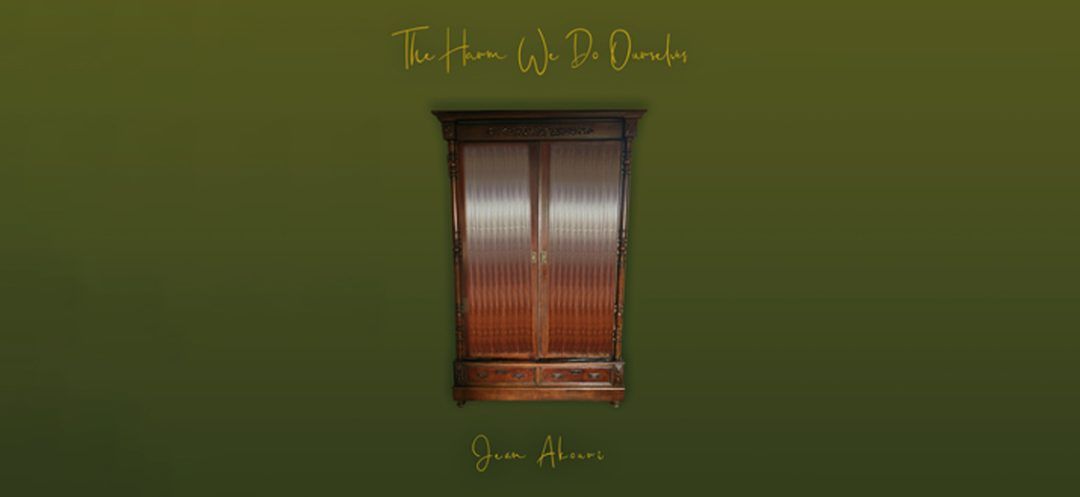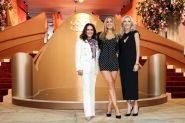
Jean Akouri’s new novel explores the complexities of gay life in Beirut, calling for introspection within the homosexual community and challenging prevailing Western LGBTQ+ narratives.
In The Harm We Do Ourselves, Jean Akouri presents a thought-provoking exploration of gay life in Beirut, offering a fresh perspective on LGBTQ+ issues often dominated by Western viewpoints. Set against the backdrop of a murder investigation, the novel delves into the challenges faced by homosexuals in countries where their existence is contested, while critically examining the impact of Western LGBTQ+ politics on global perceptions of gay individuals.
The story follows Sami, an openly gay man in Beirut, who is summoned for questioning regarding the murder of an acquaintance. This event triggers a week-long introspective journey, during which Sami engages in conversations that force him to confront the realities of being homosexual in contemporary society.
Akouri’s narrative skillfully weaves together various themes, including the invisibility of gay people in certain cultures, the impact of traditions, religions, and laws on gay lives, and the coping mechanisms employed by homosexuals in restrictive environments. The author also explores the potential for self-destructive behaviors within the gay community, urging readers to reflect on how they can improve their own lives and mental health.
One of the most striking aspects of The Harm We Do Ourselves is its critical stance on Western LGBTQ+ politics. Akouri argues that these ideologies, while well-intentioned, may have unintended negative consequences for gay individuals in countries where homosexuality is not legally or socially accepted. The author posits that the association with broader LGBTQ+ movements has, in some cases, harmed the perception and acceptance of homosexuals globally.
This perspective challenges readers to consider the complexities of exporting Western concepts of sexual identity and activism to diverse cultural contexts. By encouraging gay individuals to “take a hard look in the mirror,” Akouri aims to foster a dialogue about sustainable, healthy ways of living and coping with societal pressures.
While the novel is set in Beirut and focuses on the Lebanese context, its themes resonate far beyond the Middle East. The Harm We Do Ourselves offers insights into the intersection of identity, society, and mental health, as well as the challenges of navigating multiple cultural influences. These universal themes make the book relevant to readers worldwide, regardless of their sexual orientation or cultural background.
Jean Akouri brings a wealth of experience to his writing. With a background in journalism and communications, including work in Dubai and Switzerland, Akouri has established himself as a keen observer of social dynamics. His Lebanese heritage and American education provide him with a unique perspective on the intersection of Eastern and Western cultures.
The Harm We Do Ourselves represents an important addition to the literature on gay experiences, particularly those outside the Western world. By challenging prevailing narratives and encouraging introspection, Akouri has created a work that promises to spark meaningful discussions about identity, society, and personal responsibility.
As the book becomes available worldwide, it has the potential to reach a diverse audience and contribute to a more nuanced understanding of homosexuality in various cultural contexts. Whether readers agree with all of Akouri’s assertions or not, The Harm We Do Ourselves undoubtedly offers a fresh and thought-provoking perspective on an increasingly complex global conversation.
The novel is available in paperback and e-book formats from e-retailers such as Amazon and can be ordered from leading bookstores worldwide. For those interested in delving deeper into the themes explored in The Harm We Do Ourselves, the book promises to be a transformative reading experience, offering insights into the complex interplay between identity, society, mental health, and personal growth in the context of homosexuality.
In The Harm We Do Ourselves, Jean Akouri presents a thought-provoking exploration of gay life in Beirut, offering a fresh perspective on LGBTQ+ issues often dominated by Western viewpoints. Set against the backdrop of a murder investigation, the novel delves into the challenges faced by homosexuals in countries where their existence is contested, while critically examining the impact of Western LGBTQ+ politics on global perceptions of gay individuals.
The story follows Sami, an openly gay man in Beirut, who is summoned for questioning regarding the murder of an acquaintance. This event triggers a week-long introspective journey, during which Sami engages in conversations that force him to confront the realities of being homosexual in contemporary society.
Akouri’s narrative skillfully weaves together various themes, including the invisibility of gay people in certain cultures, the impact of traditions, religions, and laws on gay lives, and the coping mechanisms employed by homosexuals in restrictive environments. The author also explores the potential for self-destructive behaviors within the gay community, urging readers to reflect on how they can improve their own lives and mental health.
One of the most striking aspects of The Harm We Do Ourselves is its critical stance on Western LGBTQ+ politics. Akouri argues that these ideologies, while well-intentioned, may have unintended negative consequences for gay individuals in countries where homosexuality is not legally or socially accepted. The author posits that the association with broader LGBTQ+ movements has, in some cases, harmed the perception and acceptance of homosexuals globally.
This perspective challenges readers to consider the complexities of exporting Western concepts of sexual identity and activism to diverse cultural contexts. By encouraging gay individuals to “take a hard look in the mirror,” Akouri aims to foster a dialogue about sustainable, healthy ways of living and coping with societal pressures.
While the novel is set in Beirut and focuses on the Lebanese context, its themes resonate far beyond the Middle East. The Harm We Do Ourselves offers insights into the intersection of identity, society, and mental health, as well as the challenges of navigating multiple cultural influences. These universal themes make the book relevant to readers worldwide, regardless of their sexual orientation or cultural background.
Jean Akouri brings a wealth of experience to his writing. With a background in journalism and communications, including work in Dubai and Switzerland, Akouri has established himself as a keen observer of social dynamics. His Lebanese heritage and American education provide him with a unique perspective on the intersection of Eastern and Western cultures.
The Harm We Do Ourselves represents an important addition to the literature on gay experiences, particularly those outside the Western world. By challenging prevailing narratives and encouraging introspection, Akouri has created a work that promises to spark meaningful discussions about identity, society, and personal responsibility.
As the book becomes available worldwide, it has the potential to reach a diverse audience and contribute to a more nuanced understanding of homosexuality in various cultural contexts. Whether readers agree with all of Akouri’s assertions or not, The Harm We Do Ourselves undoubtedly offers a fresh and thought-provoking perspective on an increasingly complex global conversation.
The novel is available in paperback and e-book formats from e-retailers such as Amazon and can be ordered from leading bookstores worldwide. For those interested in delving deeper into the themes explored in The Harm We Do Ourselves, the book promises to be a transformative reading experience, offering insights into the complex interplay between identity, society, mental health, and personal growth in the context of homosexuality.
Read more



Comments